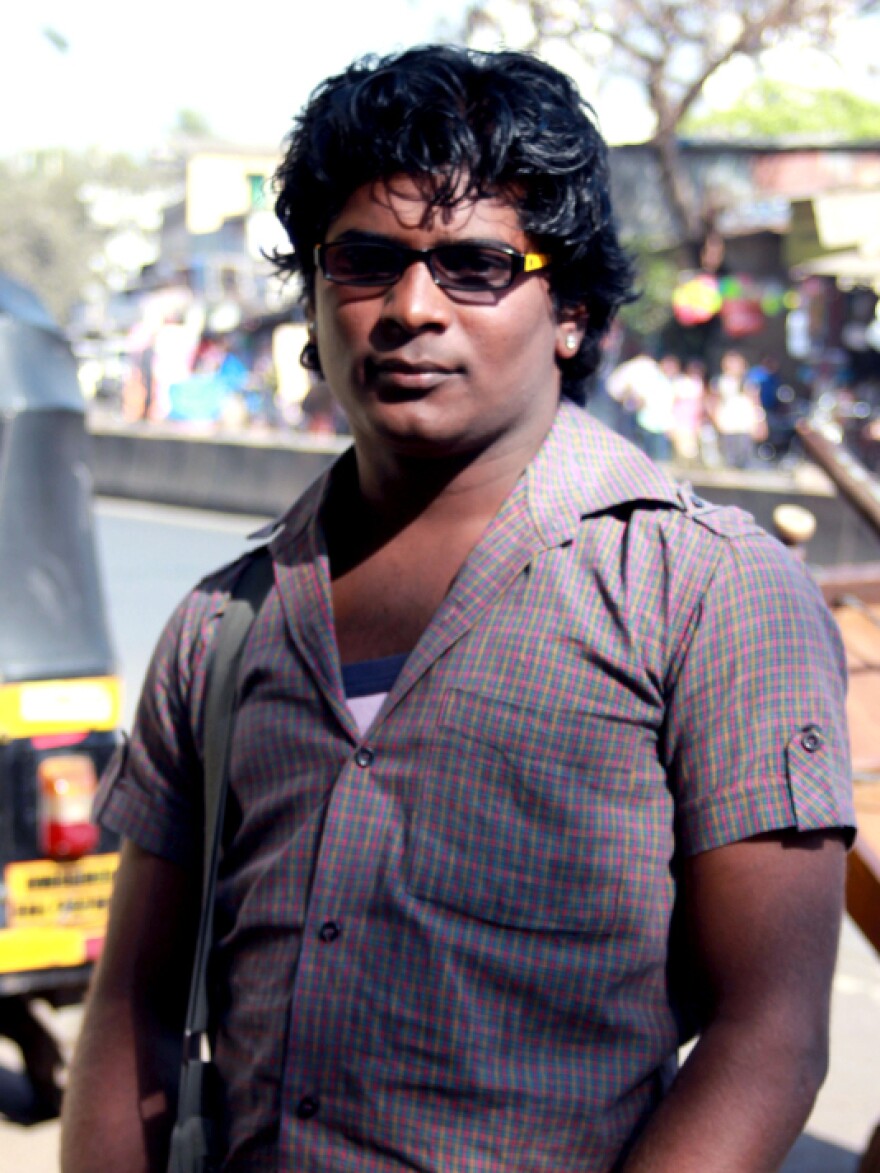It's just after nightfall as Anandrag Davinder, an outreach worker among Mumbai's mostly hidden community of gay men, wanders down a dark alley beside a busy railway station in Mumbai. His stop is a squalid row of urinal buildings where gay men go to meet, hidden from public view. The stench inside is overwhelming.
"This is a loo. This is a cruising center," Davinder says, stepping into the crowded, nearly pitch-black room. "All the gays are standing here only and saying, 'I like these guys. I want to do sex with this person.' "
The men here are among what Davinder calls India's "key population" — those most at risk of contracting HIV. He and his colleague, Husefa Saigoonwala, come here every week to pass out handfuls of condoms.
Davinder and Saigoonwala are with the Humsafar Trust, which provides free HIV tests and other health services to Mumbai's gay community. Its CEO, Vivek Anand, says the reach of organizations like this has increased tenfold in just the past three years thanks in part to a 2009 benchmark ruling in Delhi's High Court.
The ruling struck down a 148-year-old law known as Section 377, a holdover from British colonial rule that made homosexual acts illegal. Many former British colonies still have Section 377 laws. And Anand says that under the legislation, gay men and women were largely ignored by India's efforts to tackle HIV/AIDS in the country.

"Three years ago, we were providing services to 30,000 [people]. Three years later, we are providing services to 300,000," says Anand. "That wouldn't have been possible had the Delhi High Court judgment not been in place."
He says that wider level of outreach has allowed health workers to more accurately measure HIV among India's gay population. "That's the idea, that more and more people come out so that we know what is the exact number of HIV positive people in the community," he says.
The government estimates that 7 percent of gay and bisexual Indian men have HIV, compared with less than 1 percent in India as a whole.
A handful of religious leaders and conservative groups are using those figures to argue that homosexuals are fueling a rise of HIV in India. They argue that homosexuality doesn't have a place in Indian culture, and they're petitioning India's Supreme Court to overturn the Delhi High Court ruling.
Efforts to reach several of those groups for this story were unsuccessful. But members of India's government have, at times, expressed similar views. Speaking at an AIDS conference in Delhi last year, India's health minister, Ghulam Nabi Azad, referred to homosexuality as a disease.
"Unfortunately this disease, where a man has a sex with another man — found more in the developed world — has spread in our country," Azad said. "Gay sex is completely unnatural. It should not exist, but it does."
The minister later played down those comments. And earlier this year, the Indian government reversed its position before the Supreme Court. It now says it supports legalizing homosexuality and abolishing Section 377. India's Supreme Court began a six-week-long recess Monday without ruling on the landmark case, which has captivated many in the country. It could decide the case when it returns to session in July.
However, Anand of the Humsafar Trust warns that even if the court upholds the ruling that homosexuality is legal, gay men and women in India still face widespread discrimination by police and health care providers. He points to the death of an HIV-positive team member last year after a hospital initially refused to give him advanced treatment for HIV because of his sexual orientation.
"I was totally ashamed of myself and guilt-ridden that my boy died," Anand says. "My boy died because his second-line treatment was delayed. If this is happening to my team, with all our resources and all our work behind us, you can imagine what must be the situation outside."
He says changing the law is one thing. Changing minds is a whole other challenge.
Christopher Werth reported from India with the help of the International Reporting Project in Washington, D.C.
Copyright 2021 NPR. To see more, visit https://www.npr.org.



